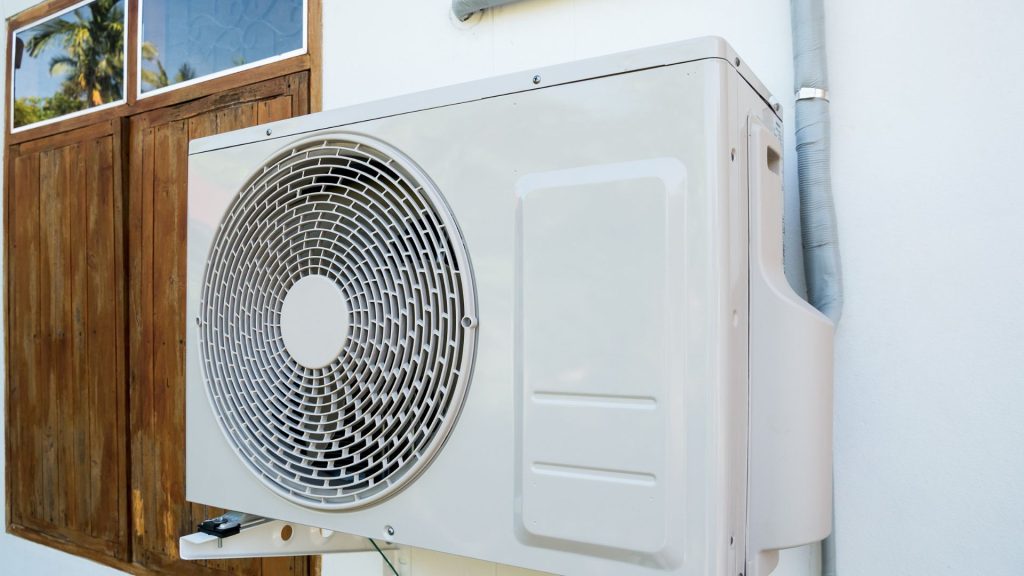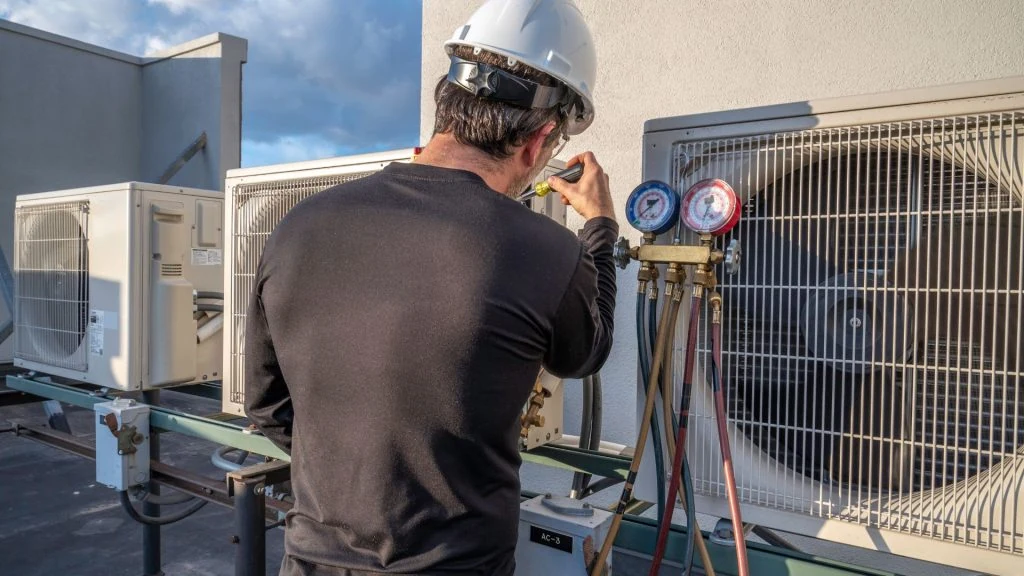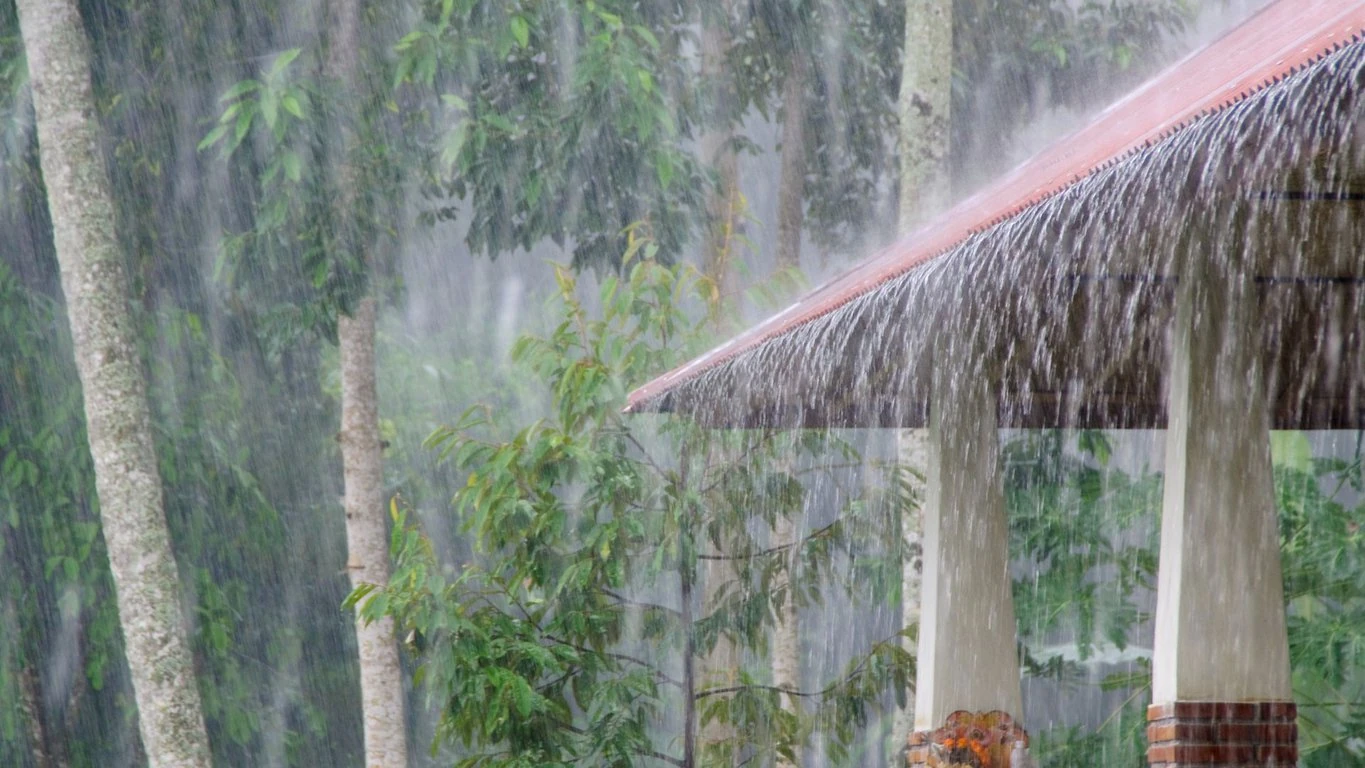Rainy weather can be a refreshing break from the scorching heat of summer, but it can also wreak havoc on your air conditioning unit. The sound of raindrops may be soothing, but the damage that rainwater can cause to your AC system can be anything but relaxing. From flooding and water damage to clogged air filters and electrical issues, rainy weather can impact your AC unit in a variety of ways.

Flooding and Water Damage
One of the most significant risks to your AC unit during rainy weather is flooding and water damage. This can occur if your unit is located in a low-lying area or if the surrounding ground becomes saturated with water. If water enters your AC unit, it can cause significant damage to the electrical components and other parts of the system.
To prevent flooding and water damage, it’s crucial to ensure your AC unit is installed on an elevated platform or in an area with good drainage. If you live in an area prone to flooding, you may also want to consider installing a sump pump or other water management system to prevent water from entering your home.
Moisture Buildup
Rainy weather can also cause moisture buildup inside your AC unit, leading to mould and mildew growth. This can be particularly problematic if you have allergies or respiratory issues, as mould can exacerbate these conditions.
To prevent moisture buildup, it’s vital to ensure that your AC unit is properly insulated and that the condensation drain line is clear of debris. You may also want to consider using a dehumidifier in your home to help control humidity levels.
Clogged Air Filters
Another issue that can arise during rainy weather is clogged air filters. This can occur if debris and dirt are washed into your AC unit by rainwater, causing the filters to become clogged and reducing airflow. Reduced airflow can cause your AC unit to work harder, leading to increased energy usage and higher utility bills.
To prevent clogged air filters, it’s essential to clean or replace them regularly, particularly during rainy weather when debris and dirt are more likely to accumulate.
Electrical Issues
Rainy weather can also cause electrical issues with your AC unit. Water can damage electrical components and wiring, leading to malfunctions or even electrical fires. Lightning strikes can also damage your AC unit, particularly if it’s not properly grounded.
To prevent electrical issues, it’s crucial to ensure your AC unit is properly installed and maintained. This includes having a licensed electrician install the wiring and ensuring the unit is properly grounded.
Maintenance Tips for Rainy Weather
To keep your AC unit running smoothly during rainy weather, it’s essential to perform regular maintenance. This includes cleaning or replacing air filters, ensuring the condensation drain line is clear, and inspecting the unit for signs of damage or wear.
Having your AC unit inspected annually by a licensed professional is also a good idea. This can help identify issues before they become major problems and ensure that your AC unit runs efficiently.

Final Thoughts
Rainy weather can significantly impact your air conditioning unit, from flooding and water damage to clogged air filters and electrical issues. By taking steps to prevent these issues and performing regular maintenance, you can ensure your AC unit remains in good working order, even during the wettest weather. If you do experience any issues with your AC unit, be sure to contact a licensed professional for repairs or maintenance.
Keep your AC units safe during the rainy season with the help of Mechanical Systems. We are a trusted HVAC and commercial refrigeration company that provides AC repair in Mississauga. We focus on customer service and technical professionalism because once you’re a client, you become a part of the family. Get in touch with us today!
